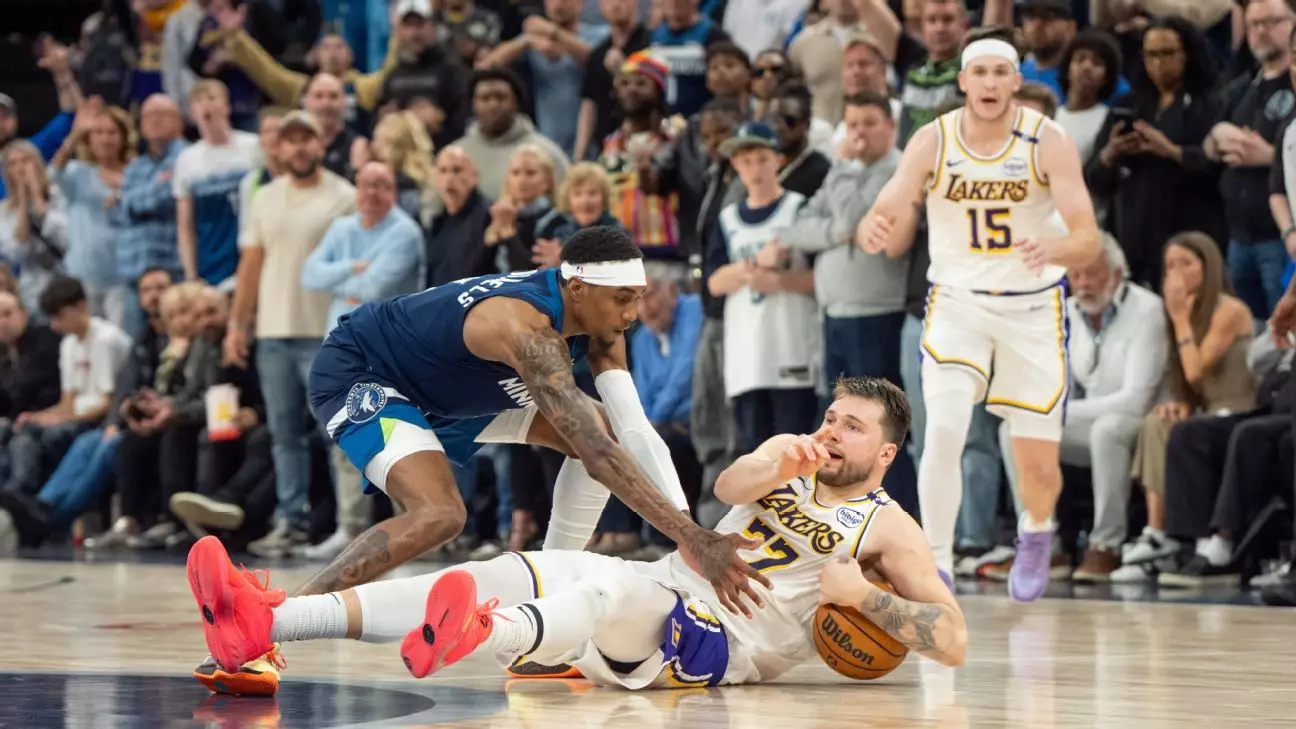In the fiercely competitive landscape of the NBA playoffs, every point counts, and a missed call can send shockwaves through a team’s season. The Los Angeles Lakers found themselves on the wrong end of such a situation during their critical Game 4 matchup against the Minnesota Timberwolves. With only 33 seconds remaining and the Lakers trailing by a single point (114-113), a pivotal foul on Luka Doncic went uncalled. Jaden McDaniels’ trip on Doncic not only disrupted the offensive flow but robbed the Lakers of a potential opportunity to take the lead. Such crucial oversights should not be taken lightly, especially in the high-stakes environment of playoff basketball.
The Ripple Effect of One Non-Call
The implications of that uncalled foul extended beyond just a missed free throw opportunity for Doncic. By maintaining possession after the fall, the Lakers called a timeout to avoid a disastrous eight-second violation, but that brief pause couldn’t halt the momentum shift. Soon after, the Timberwolves capitalized on a turnover, and Anthony Edwards sank two free throws to extend their lead. This sequence of events showcases how a single misjudgment by officials can reverberate through the game’s outcome, leaving players and fans alike questioning the integrity of officiating in crucial moments. The NBA’s Last Two Minute Report acknowledged the error, yet such recognition post-game feels hollow to an organization that claims to prioritize fairness and accuracy on the court.
Frustration Mounts Among Players
Luka Doncic was far from subtle in expressing his views. “I got tripped, for sure,” he declared emphatically, echoing a sentiment shared by many players who have felt the sting of missed or misinterpreted calls. The frustration of professional athletes is palpable, and their commitment to competitive integrity should compel the league to seek solutions rather than repeat history. Meanwhile, LeBron James, in his characteristic analysis, lamented another missed call, stating that his contact with Edwards did not warrant a foul. Such friction between player perceptions and official rulings can create unnecessary animosity and distraction as they navigate the pressure-laden environment of the playoffs.
Addressing Officiating Standards
The NBA must seriously reevaluate its officiating protocols, especially during the playoffs when emotions soar and every moment magnifies the importance of accuracy. It is crucial for the league to introduce technological enhancements or additional layers of accountability. This could include real-time reviews for critical moments or the implementation of an independent reviewing body to evaluate calls during pivotal games. While the NBA attempts to maintain the human aspect of officiating, the current system leaves significant room for error, jeopardizing the integrity of the games.
Rethinking the Future of Officiating
In the wake of these glaring oversight incidents, one can’t help but wonder about the broader ramifications for the sport. As fans are left to grapple with the emotional weight of these high-stakes moments, the NBA risks alienating its loyal viewership. The focus should turn from merely acknowledging errant calls to instituting systemic changes that could prevent such occurrences in future playoffs. After all, in a game markedly defined by precision, ensuring that every play is adjudicated correctly is not just a suggestion—it is a necessity.

